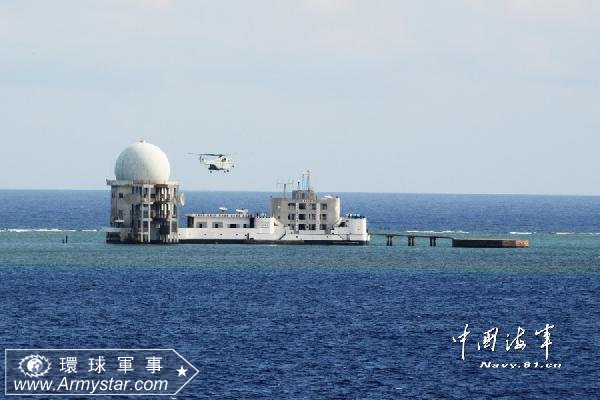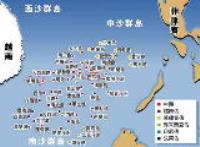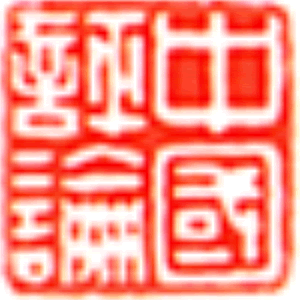
|
| 南海华阳礁(资料图) |
【Unilateral Action】
It is the common wish of people of all countries, including China, to object any unilateral action aimed to change the post-WWII international order and system of international law that are established based on the Charter of the United Nations (Charter). Before we could comment on whether China's actions are unilateral or not, we need to know first what is unilateral action.
"Unilateral action" is not a legal term. The current system of international law contains no specific rules of either treaty, customary law or general principle regulating "unilateral action". The only relevant authoritative non-binding document is a 2006 UN International Law Commission produced report entitled Guiding Principles Applicable to Unilateral Declarations of States Capable of Creating Legal Obligations, which focused mainly on states declarations. However, the prohibition on the use of force in international relations is a fundamental principle established by the Charter and has become jus cogens. "Unilateral action" first drew attention in the international discourse system because of the Invasion of Iraq in 2003, when the United States waged a war against Iraq without the authorization by the UN Security Council on the excuse that the Saddam administration manufactured Weapons of Mass Destruction (WMD). Such unilateral action drew harsh criticism from not only US allies such as Germany, France and New Zealand but also from within the United States and Britain. Many criticized this unilateral action as unwise, immoral, and illegal.
Robin Cook, then the leader of the United Kingdom House of Commons and a former foreign secretary who resigned from Tony Blair's cabinet in protest over the UK's decision to invade without the authorization of a UN resolution, said at the time that: "In principle I believe it is wrong to embark on military action without broad international support. In practice I believe it is against Britain's interests to create a precedent for unilateral military action." Since the Invasion of Iraqi in 2003, "unilateral action" has been established as a term of political science in the international discourse system. The Saddam regime was overthrown by the US-British coalition forces, but none of the alleged WMD was found. The era of freedom and democracy promised by the United States was yet to come to date. The Iraqi people are still living in dire misery today.
If the United States' unilateral use of force against Iraq in 2003 could be taken as the international standard for unilateral action, the international community needs to ask the following questions. When Prime Minister Shinzo Abe determined to revise Japan's Peace Constitution despite the objection from its Asian neighbors and made such statements that justify the aggressive war and deny Japan's war responsibility, wasn't that unilateral? When the Japanese government unilaterally bought and nationalized the Diaoyu Islands, over which China has sovereignty, regardless of the objection of Chinese people, wasn't that unilateral? When the Philippines and other countries built facilities on China's islands that they illegally occupied, wasn't that unilateral? When the Philippine military illegally used force against unarmed Chinese fishermen, including those from Taiwan, resulting in death and casualties, wasn't that unilateral?
All measures adopted by China in the East China Sea and South China Sea are defensive in nature and taken as a response to unilateral actions of Japan, the Philippines and other countries. China has maintained utmost restraint during the course of actions. Many politicians and scholars in western countries "purposefully turn a blind eye to the truth" and naturally ignore the logic of "which comes first, chicken or egg?" In the East China Sea, it was Japan that first took the unilateral action of buying and nationalizing the Diaoyu Islands, over which China has sovereignty. And then China established as a defensive measure its Air Defense Identification Zone in the East China Sea. In the South China Sea, it was the Philippine military and police force that first used force against the unarmed Chinese fishermen. And then China took some defensive law enforcement action as a response. But some people just apply double standards and confound right and wrong on purpose, accusing China of bullying small countries and as well uphoding "mighty is wrong" to whatever China does.
|

